Addition skills Word Problems Worksheets for Ages 7-9
11 filtered results
-
From - To
Enhance your child's mathematical abilities with our engaging Addition Skills Word Problems Worksheets designed for ages 7-9! Our collection features a variety of age-appropriate, real-life scenarios that encourage critical thinking and problem-solving while making math fun. Each worksheet incorporates different contexts and gradually increases in complexity, ensuring that your child builds confidence and proficiency in addition. Perfect for both classroom use and at-home practice, these worksheets will motivate young learners to apply their addition skills in everyday situations. Boost your child’s learning experience today with our high-quality, printable worksheets that support foundational math skills development!
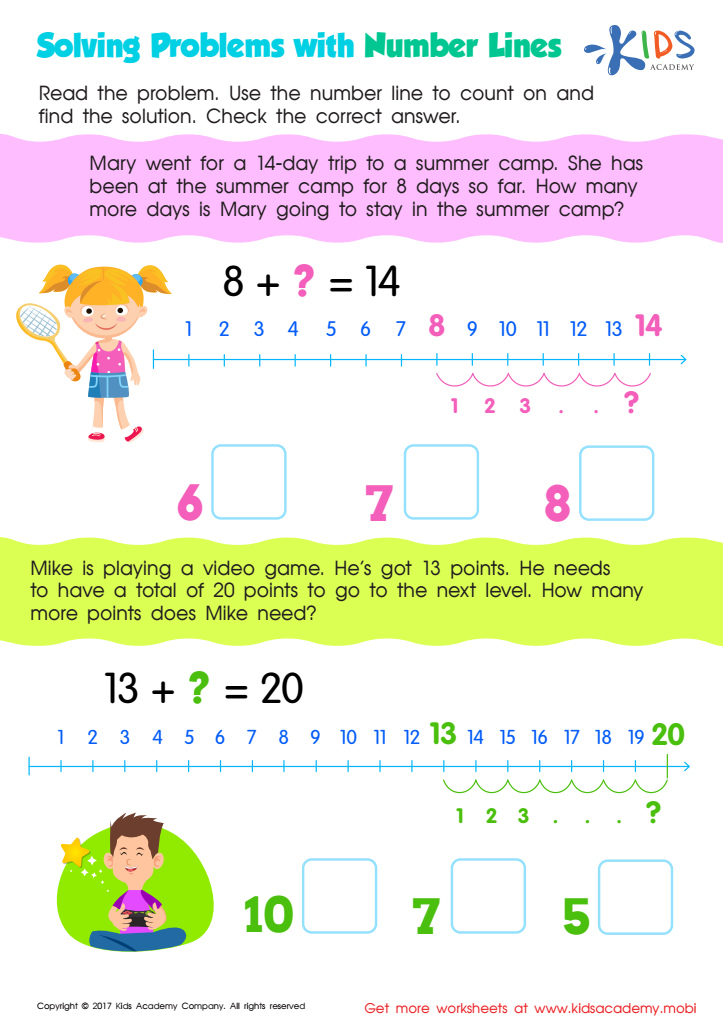

Solving Problems: Number Lines Worksheet
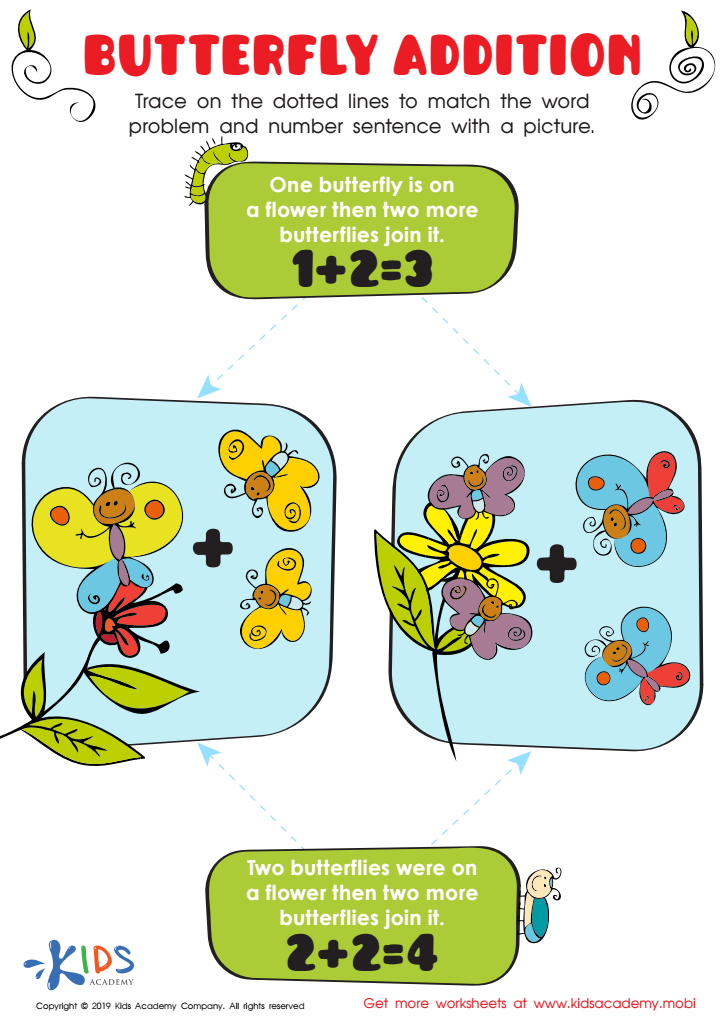

Butterfly Addition Worksheet
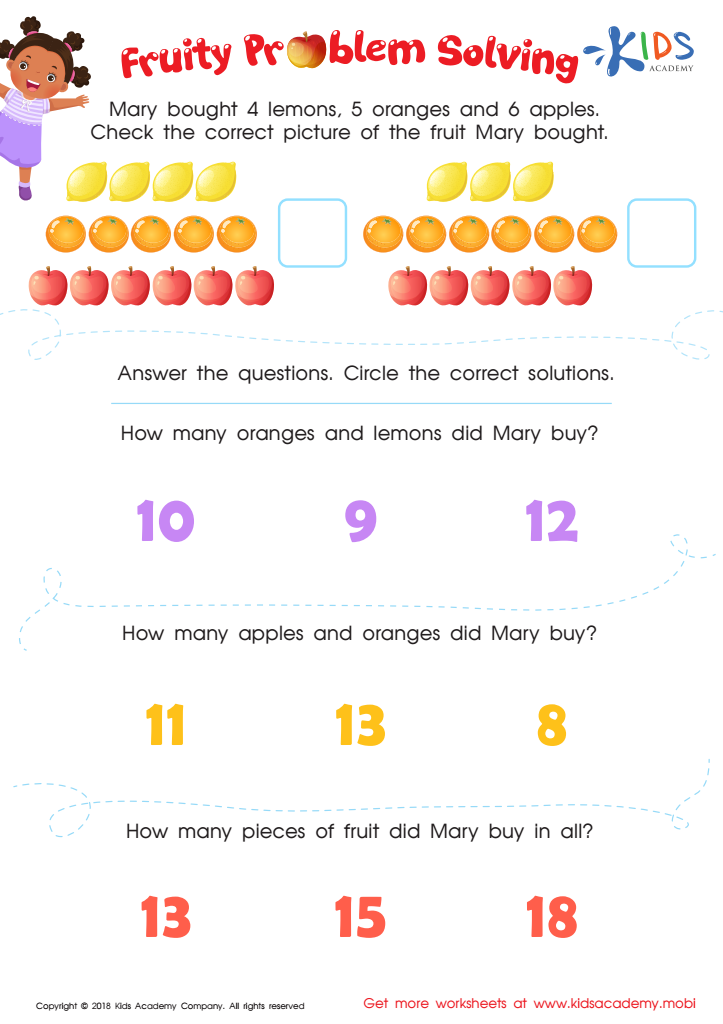

Fruity Problem Solving Worksheet


Adding Flower Petals Worksheet
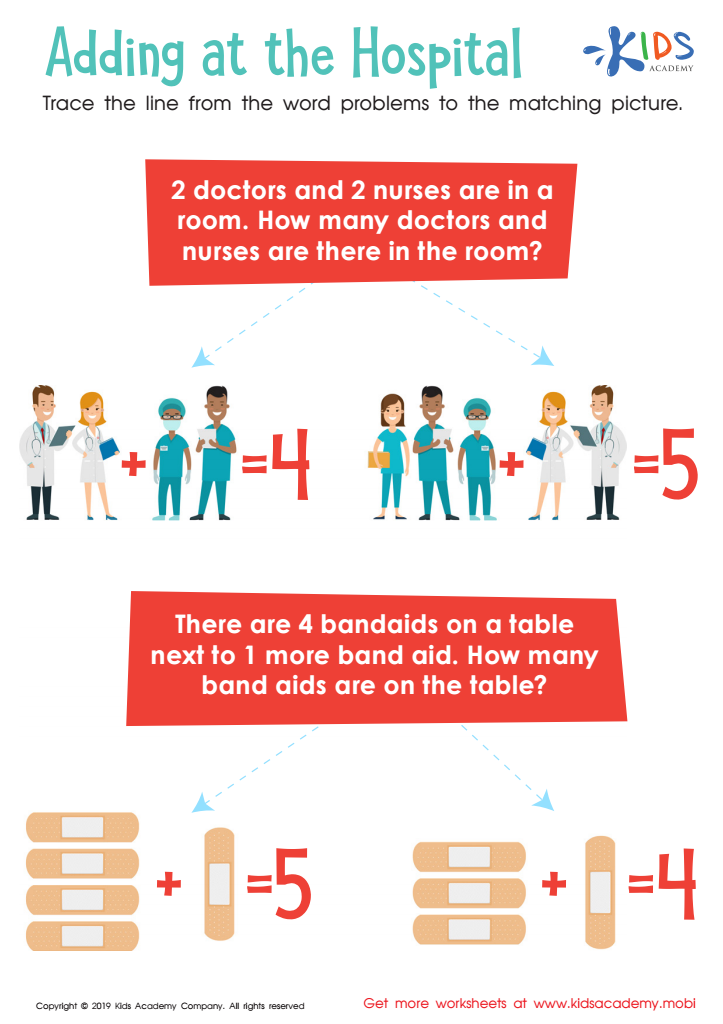

Adding at the Hospital Worksheet
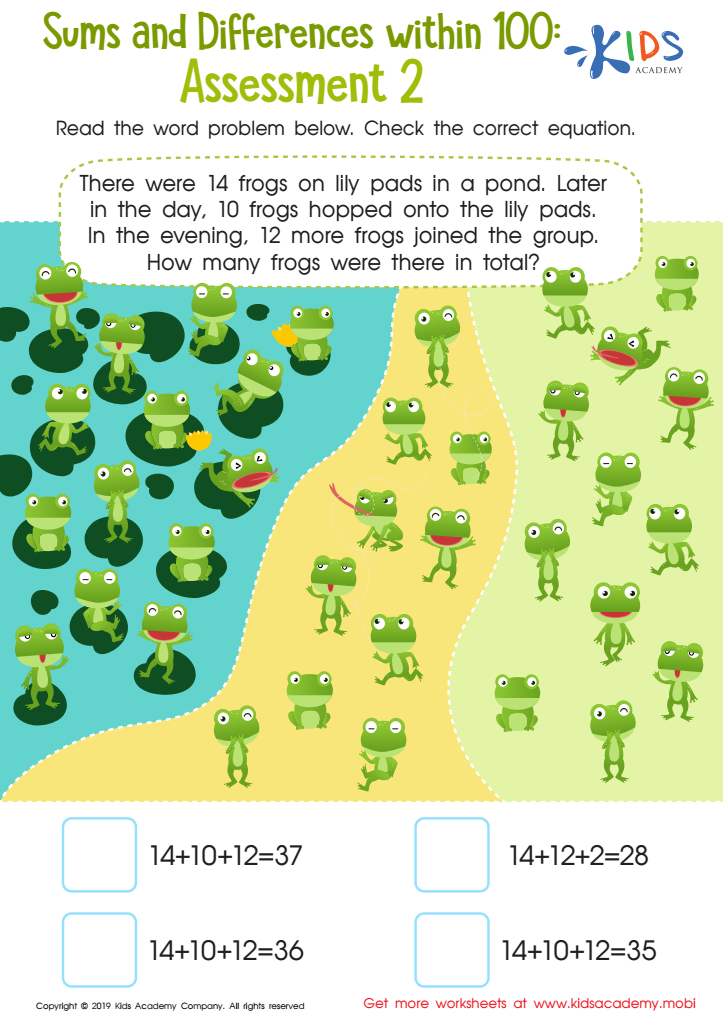

Sums and Differences Within 1 - Assessment 2 Worksheet
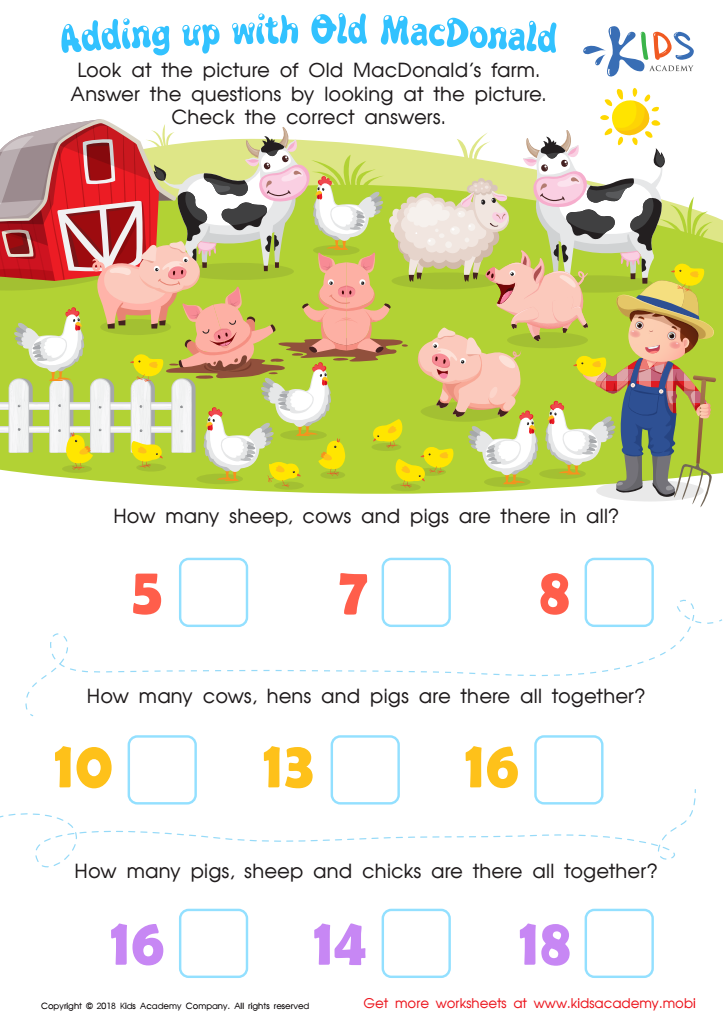

Adding Up with Old MacDonald Worksheet
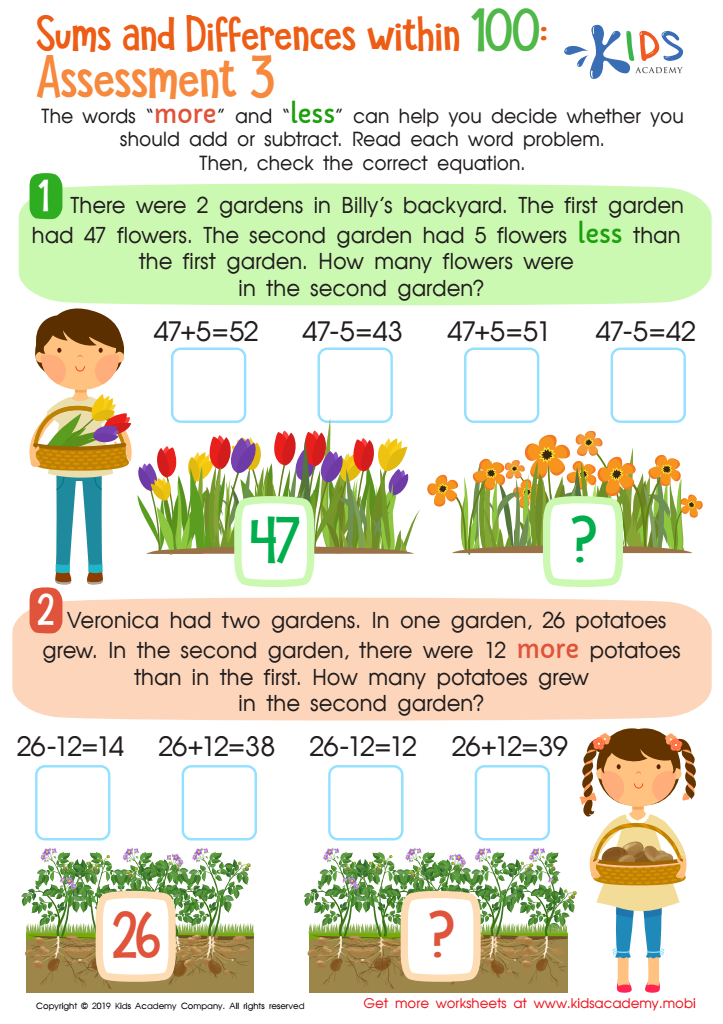

Sums and Differences Within 1 - Assessment 3 Worksheet
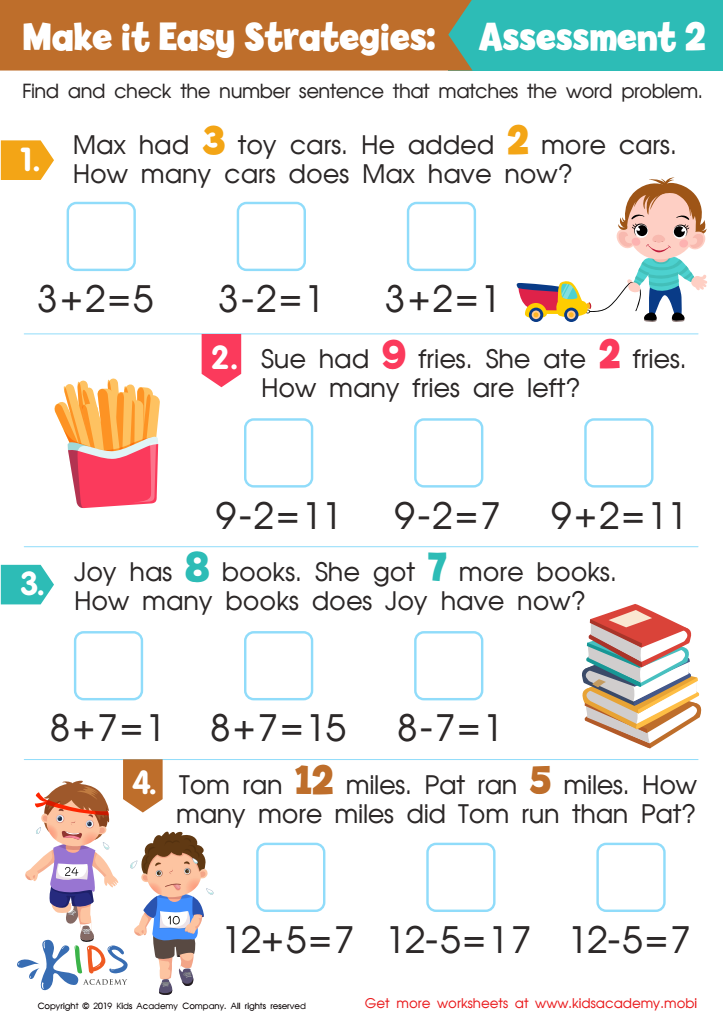

Make it Easy Strategies: Assessment 2 Worksheet
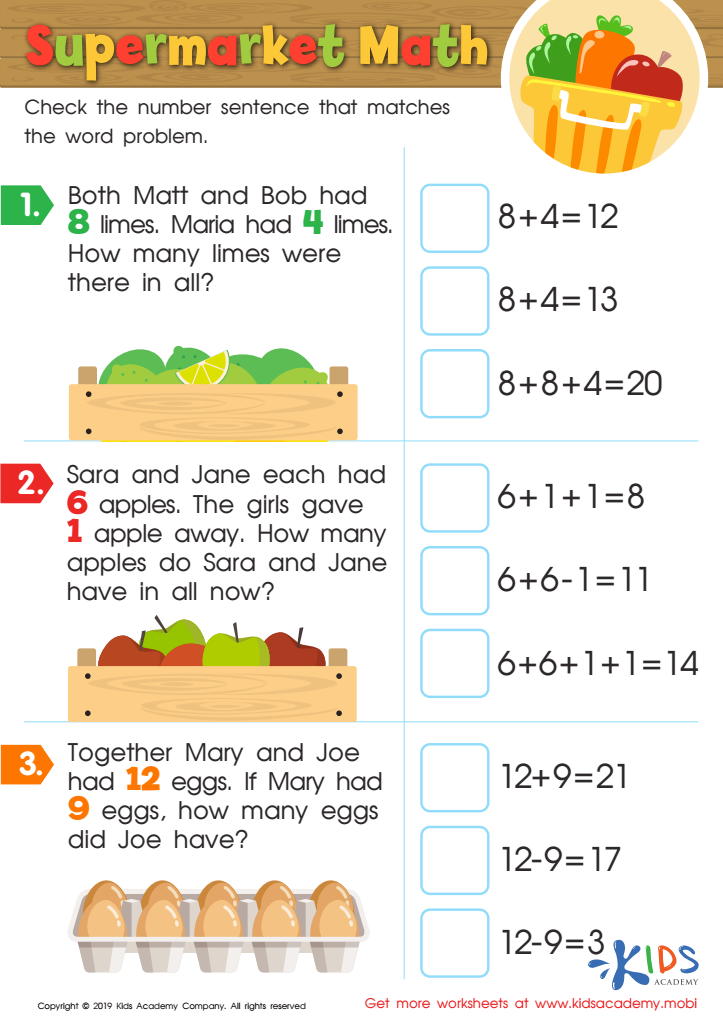

Supermarket Math Worksheet
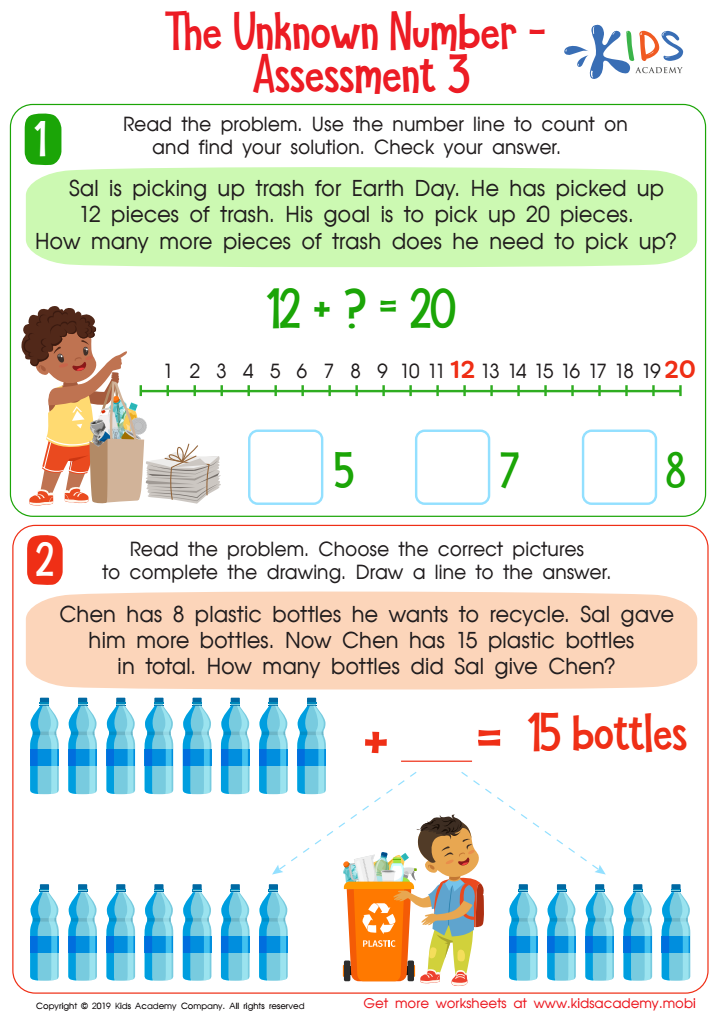

The Unknown Number - Assessment 3 Worksheet
Parents and teachers should prioritize addition skills word problems for children aged 7 to 9 because they play a crucial role in developing critical thinking, problem-solving abilities, and real-life application of mathematics. At this age, children are transitioning from learning basic arithmetic to applying these skills in practical scenarios. Word problems facilitate this application by helping students connect mathematical concepts to everyday situations, enhancing their comprehension and retention.
Moreover, tackling word problems fosters analytical thinking as children must interpret the information presented, identify relevant numerical operations, and devise a strategy to arrive at the solution. This process encourages them to think logically and enhances their verbal and mathematical communication skills.
Additionally, mastering addition through word problems can boost children's confidence in their math abilities, mitigating anxiety often associated with mathematics. Engaging with these problems promotes perseverance and resilience, as students learn that challenges can be approached strategically.
In summary, addition skills word problems are essential in nurturing a child’s cognitive development, mathematical understanding, and problem-solving capabilities, preparing them for future academic challenges and everyday life experiences. Encouraging proficiency in this area ultimately builds a strong foundation for more complicated mathematical concepts in the future.
 Assign to My Students
Assign to My Students

















